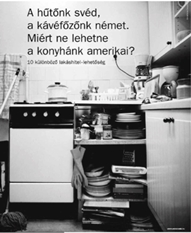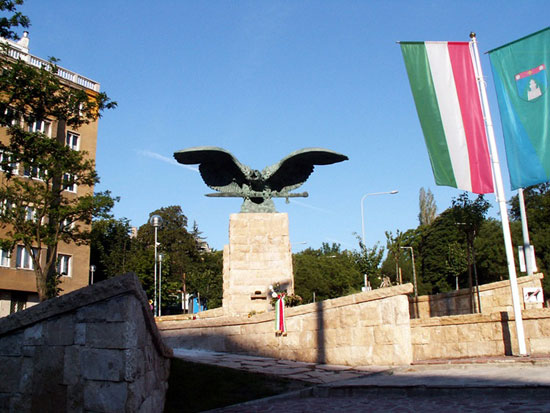Hintergrund:
Die wegen der Abschaffung unabhängiger Institutionen und dem Abbau des Parlamentarismus bereits mehrfach in die Kritik geratene Orban-Regierung hat zu Beginn ihrer zweiten Amtszeit zu einem weiteren Schlag ausgeholt: die Glaubwürdigkeit von autonomen Zivilorganisationen, die ein Gegengewicht zur Regierung darstellen, wird infragegestellt und deren unabhängige Finanzierung wird behindert.
Der Norwegische Finanzmechanismus (NF) ist Teil eines Abkommens zwischen der EU, Norwegen, Island und Lichtenstein zur Förderung von Projekten in weniger entwickelten europäischen Volkswirtschaften. Die ungarische Regierung hat ihren Angriff auf den Norwegischen Nichtregierungsorganisations Fonds (NNGOF) Anfang April gestartet, nur einen Tag nach ihrem erneuten überragenden Wahlerfolg. Der NNGOF ist ein kleiner Teil des NF, welcher durch ein Konsortium von vier ungarischen Stiftungen seit Jahren mit großem Erfolg verwaltet wird. Die Anschuldigung lautet, dass Norwegen durch diese vier Stiftungen Einfluss auf die ungarische Politik nehmen möchte. Norwegen hat diese Anschuldigungen entschieden zurückgewiesen.

Nachdem die norwegische Regierung diese Anschuldigungen zurückgewiesen hat, entsandte die ungarische Regierung Mitarbeiter der Regierungskontrollbehörde (KEHI) um jene Organisationen zu prüfen, die über die Vergabe der Mittel entscheiden. Die Regierung führt eine eskalierende Kampagne gegen diese vier Organisationen und hat sie der politischen Einflussnahme beschuldigt. Obwohl KEHI ankündigte die Ökotars Stiftung zu prüfen, jene NGO die das Konsortium leitet, entsandte die Behörde stattdessen Mitarbeiter zu zwei weiteren Partnerorganisationen. Diese Organisationen wurden mit der Aussetzung ihrer Steuerbewilligung bedroht, falls sie nicht kooperieren würden. Die Rechtsgrundlage für die Prüfung wird von den Konsortiumsorganisationen bezweifelt.
In den vergangen Jahren sind insbesondere regierungskrititsche NGOs wiederholt Diffamierungsversuchen ausgesetzt worden. Am 30. Mai 2014 wurde ein Artikel veröffentlicht, der besagt, dass die ungarische Regierung jene NGOs, die durch den NNGOF gefördert wurden, wegen angeblicher politischer Verbindungen auf eine Schwarze Liste gesetzt hat. In einer Stellungnahme die per E-Mail an Reuters gesandt wurde, erklärte die Regierung, dass sie nicht die Absicht habe einzelne NGOs zu attackieren, aber wiederholte die Anschuldigung, dass durch die Förderung politischer Einfluss ausgeübt werde.
Die juristischen Möglichkeiten und der Aktionsspielraum von Zivilorganisation in Ungarn werden immer geringer. Durch das Mediengesetz, das die Ausübung der Meinungsfreiheit einschränkt, und durch juristische Verfahren werden Journalisten möglicherweise zur Selbstzensur getrieben. All diese Schritte führen dazu, dass Ungarn immer mehr Putins Russland ähnelt, wo die Einschüchterung der letzten unabhängigen Stimmen zur Zerstörung aller Schutzmechanismen demokratischer Staaten führt.
Laut Atlatszo.hu, einer der NGOs auf der Schwarzen Liste, hat sich die von der Regierung initiierte Kampagne so sehr ausgeweitet, dass Gruppen, die für Umweltbelange oder Anti-Korruption eintreten, inzwischen von Regierungsbehörden ins Visier genommen werden. Der einzig greifbare Grund für dieses Vorgehen scheint darin zu liegen, dass die ungarische Regierung es nicht gerne sieht, wenn Mittel an Organisationen vergeben werden, die ihr nicht gefallen. Bei dem jetzigen Stand scheint es wahrscheinlich, dass weitere Organisationen, die derzeit eine Förderung erhalten oder in der Vergangenheit bereits erhalten haben, durch staatliche Behörden untersucht werden, mit dem erklärten Ziel zu prüfen, ob ihre Förderung legitim war, oder ob sie gezielt gefördert wurden um politische Interessen zu vertreten, die nicht denen der ungarischen Mehrheit entsprachen.
Laut dem Ungarischen Verband für Bürgerrechte, eine weitere NGO auf der Schwarzen Liste, handelt es sich bei diesen Schritten um eine Serie von Maßnahmen, die der Einschüchterung dienen sollen: von einfachen Bürgern, über die Presse bis hin zur Zivilgesellschaft sollen jegliche Kritikäußerungen an der Regierung unterbunden werden. Eine Untersuchung von Regierungsmaßnahmen seit 2010 zeigt, dass die Auflösung unabhängiger Institutionen, der Abbau des Parlamentarismus und die Trivialisierung regierungskritischer Stimmen bereits in der vorigen Amtszeit begonnen haben. Zu diesen Maßnahmen gehören unter anderem das Mediengesetz, die Beschneidung der Befugnisse des Verfassungsgerichts, die Abschaffung des Amtes des unabhänigen Ombudsmannes für Datenschutz, die Veränderung des Wahlsystems und das neue Grundgesetz.
Als Teil der Einschüchterungsversuche von unabhängigen Stimmen wurde überraschend am 2. Juni der Chefredakteur von Origo,hu, einer der größten Onlinenachrichtenseiten in Ungarn, gezwungen sein Amt niederzulegen. In der letzten Maiwoche hatte die Nachrichtenseite eine Serie von Artikeln über János Lázár, Staatssekretär im Amt des Ministerpräsidenten veröffentlicht und angemerkt, dass die jüngsten Reisekosten in Höhe von 6.500 Euro möglicherweise nicht gerechtfertigt waren. Als Antwort übte János Lázár offensichtlich Druck aus. Es ist möglicherweise dieser Vorfall, der den Chefredakteur von origo.hu, von dem es heißt, dass er dem durch den Verlag ausgeübten politischen Druck lange standgehalten habe, schließlich zu seinem Rücktritt bewogen hat. In der Folge haben zahlreich Journalisten und Redakteure der Nachrichtenseite ihren Rücktritt erklärt bzw. die Kündigung eingereicht.
Empfohlene Artikel, Stellungnahmen:
http://www.liberties.eu/en/news/putins-methods-against-criticism
http://norvegcivilalap.hu/en/government_attacks_hungarian_NGOs
http://english.atlatszo.hu/2014/06/03/hungarian-govt-targets-ngos-atlatszo-hu-is-also-under-assault/
http://www.transparency.org/news/pressrelease/transparency_international_calls_for_an_immediate_end_to_intimidation_
http://www.reuters.com/article/2014/06/02/us-hungary-norway-funding-ngo-idUSKBN0ED1QW20140602?feedType=RSS&irpc=932
http://www.hrw.org/news/2014/06/05/dispatches-harassing-civil-society-hungary
Über den Abbau des Verfassungsstaates:
http://tasz.hu/en/news/hclu-hungarian-example
Unterstützung:
Falls Sie der unten stehenden Stellungnahme zustimmen, bitten wir Sie diese auf Ihrer Homepage oder sozialen Mediaplattform am 12. Juni, 2014 in den Morgenstuden zu veröffentlichen. Falls Sie die Stellungnahme erweitern möchten, können Sie dies gerne tun. Um Einigkeit und ein einheitliches Auftreten zum Ausdruck zu bringen, empfehlen wir ein einfaches, schwarzes Bild zur Illustrierung der Stellungnahme zu verwenden.
Zeitlicher Ablauf:
Am 12. Juni wird die ungarische Regierung sich mit Vertretern von Norwegen, Island und Lichtenstein treffen, um die European Economic Area Grants, von denen der NF ein Teil ist, zu besprechen. Als Antwort auf die oben beschriebenen Ereignisse bitten wir unsere Partner-NGOs die unten stehende Stellungnahme am 12. Juni um 9.00 Uhr (Mitteleuropäische Sommerzeit) in Solidarität mit der ungarischen Zivilgesellschaft zu veröffentlichen.
Stellungnahme:
Stoppt den Angriff auf die Zivilgesellschaft in Ungarn!
Seit ihrer Wiederwahl führt die ungarische Regierung eine Kampagne gegen die Glaubwürdigkeit ungarischer NGOs und versucht Kontrolle über deren von der Regierung unabhängigen finanziellen Mittel zu gewinnen. Wir sind der Meinung, dass eine dynamische und unabhängige Zivilgesellschaft, als einer der Kontrollmechanismen gegenüber der Regierung, eine fundamentale Rolle in einer demokratischen Gesellschaft spielt. Wie am Beispiel von Putins Russland zu sehen ist, kann die Schikanierung des zivilen Sektors sehr leicht zur Kriminalisierung von NGOs und zu ihrer Stillegung führen. Wir erklären unsere Solidarität mit den ungarischen NGOs und fordern die ungarische und alle anderen Regierungen auf, die Schikanierung der Zivilgesellschaft zu unterlassen!
 1) Az elvek szintjén a csoport az ún. kikényszeríthető lakhatáshoz való jog törvénybe foglalását követeli. Ez végső soron egy olyan jogi és intézményi környezet kialakítását jelenti, amely mindenki számára biztosítja a meghatározott színvonalú lakhatás feltételeit. A gyakorlatban ez ugyanúgy jelenti az elhelyezés nélküli kilakoltatások tilalmát, mint a közösségi bérlakásszektor jelentős növelését, valamint egy olyan lakástámogatási rendszer kialakítását, amely az emberek önálló lakhatását támogatja és előnyben részesíti a jövedelem nélküli, alacsony jövedelmű, és más módokon marginalizált embereket.
1) Az elvek szintjén a csoport az ún. kikényszeríthető lakhatáshoz való jog törvénybe foglalását követeli. Ez végső soron egy olyan jogi és intézményi környezet kialakítását jelenti, amely mindenki számára biztosítja a meghatározott színvonalú lakhatás feltételeit. A gyakorlatban ez ugyanúgy jelenti az elhelyezés nélküli kilakoltatások tilalmát, mint a közösségi bérlakásszektor jelentős növelését, valamint egy olyan lakástámogatási rendszer kialakítását, amely az emberek önálló lakhatását támogatja és előnyben részesíti a jövedelem nélküli, alacsony jövedelmű, és más módokon marginalizált embereket.
 The earliest known representation of the Turul bird on one of the vessels found among the Treasure of Nagyszentmiklós. Its origins and age are still debated, but it probably dates from the Avar Khaganate, sixth to seventh century CE.
The earliest known representation of the Turul bird on one of the vessels found among the Treasure of Nagyszentmiklós. Its origins and age are still debated, but it probably dates from the Avar Khaganate, sixth to seventh century CE. 

 The symbol of the Hungarian National Socialist Workers Party, transformed following its prohibition in 1933. Notice the Turul on top.
The symbol of the Hungarian National Socialist Workers Party, transformed following its prohibition in 1933. Notice the Turul on top.




 MMA countdown – Free Artists welcomes the resigned MMA-members!
MMA countdown – Free Artists welcomes the resigned MMA-members! TRANSZPARENCIÁT!
TRANSZPARENCIÁT!